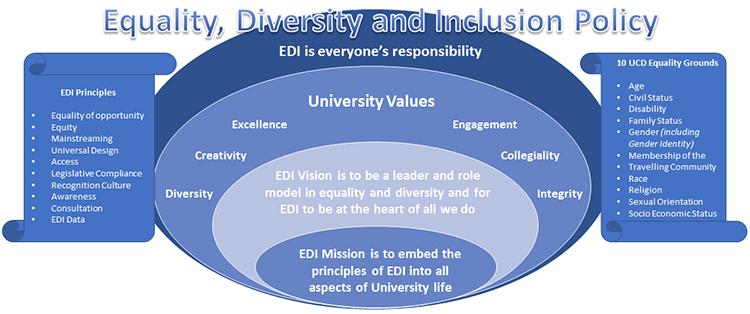Page Updated: 17 January 2024
Equality, Diversity & Inclusion Policy
UCD believes in equality, diversity and inclusion and embeds these fairness principles into all aspects of University life. UCD’s vision for EDI is to be a leader and role model in equality and diversity in the higher education sector nationally and internationally, and for EDI to be at the heart of all we do. Learn more about how we do this in our policy on Equality, Diversity & Inclusion.
(opens in a new window)View the policy in the Governance Library
More information on the EDI Policy and EDI Strategy and Action Plan can be found on our publications section.
